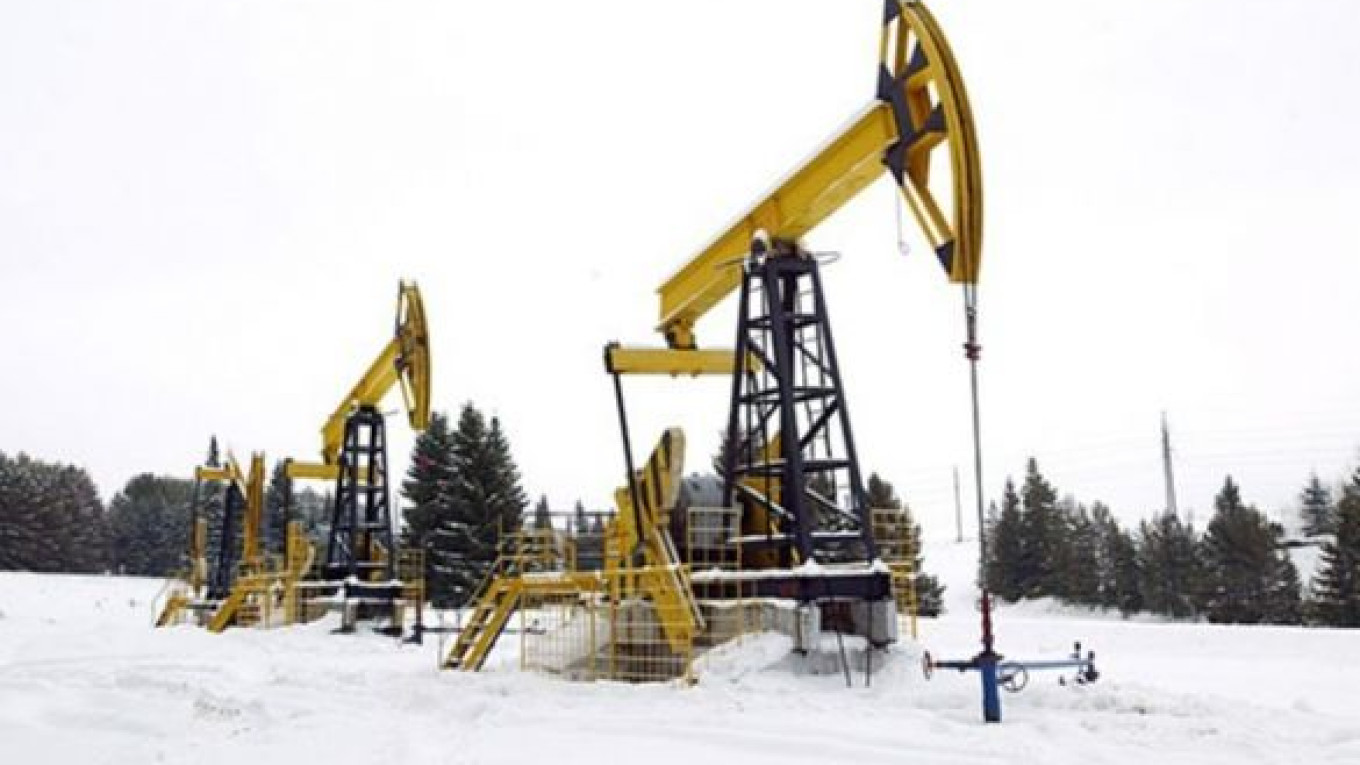The Kremlin's oil arm, Rosneft, is poised to raise its share of the industry above 50 percent, the company said while warning that excessive state control is already hampering development of new resources.
"It looks like there will be a super-champion that controls more than 50 percent of oil production in the Russian Federation," said Leonid Fedun, vice president of LUKoil and a major shareholder in the company, which is the country's second-largest oil producer.
State-controlled Rosneft is seeking to buy out BP from TNK-BP, a joint venture with a group of Soviet-born tycoons, in a deal worth more than $20 billion.
Rosneft is then expected to follow up with a similar-sized transaction, buying the rest of TNK-BP from billionaires Mikhail Fridman, German Khan, Viktor Vekselberg and Len Blavatnik.
Fedun said he believed both deals will go through. If they do, the Kremlin's share of the world's largest oil company will rise from 40 percent to above 50 percent.
"I don't know what the shareholders' arrangements are, but by law, you have to make a mandatory offer if you buy more than 30 percent in a company," said Fedun, whose personal worth is put by Forbes magazine at $6.5 billion.
Russia privatized its oil industry, the world's largest, under President Boris Yeltsin in the 1990s but regained 40 percent in the last decade under the presidency of Vladimir Putin.
The biggest private company, Yukos, was nationalized, and its politically active chief, Mikhail Khodorkovsky, was jailed for tax evasion.
The Kremlin limited privately owned companies' access to big Arctic fields and passed legislation subjecting large transactions to state approval.
"The situation is back like it was in 1993, when there were only [private] LUKoil and Surgut and [state-owned] Rosneft. What does this mean? It means that as always, the stronger will finish off the weaker," Fedun said.
Rosneft's expansion is led by chief executive Igor Sechin, formerly a top government energy official and a close ally of Putin.
Fedun said the Kremlin's rising role was still tolerable and would not fully destroy competition.
"Fifty percent is not that dangerous," he said, but he warned that Russia was already losing competitiveness in some areas.
"Of course, when you have a lot of players, you get efficiency." he said. "Just look at how Norway is developing its offshore and how we are developing our northern seas. In Norway, they have practically all their offshore zone developed."
"We, by contrast, have created a club for two companies. This may be good for the companies, but it is not necessarily good for Russia," he said, referring to the government's decision to allow only Rosneft and state-controlled gas company Gazprom to lead development of Arctic resources.
"I have no doubts the government will sooner or later open up the doors," he said. "If you open up to small companies, venture capital for the situation with the Arctic would be clearer. This is how West Africa and Brazil were developed."
LUKoil is set to benefit in coming years from new tax breaks on development of heavy oil. It also halted a decline in output in western Siberia and plans a steep increase in dividends to catch up with Western peers.
The firm's free cash flows would soar to over $20 billion a year beginning in 2021, surpassing its average of $7 billion from 2010 to 2021.
Of that amount, 40 percent would go to dividends and share buybacks by 2021, up from 23 percent in the period from 2007 to 2011.
The dividend decision was indirectly encouraged by the Kremlin after Sechin moved from the government to Rosneft, where he turned into an advocate of dividend payments.
LUKoil's chief executive, Vagit Alekperov, told investors Tuesday that dividends will rise because the company was no longer feeling "negative pressure" to artificially cap them.
"Before, we were told that by paying high dividends, we were effectively encouraging capital outflows from the country," Fedun said. "Now, this is no longer the case."
Related articles:
A Message from The Moscow Times:
Dear readers,
We are facing unprecedented challenges. Russia's Prosecutor General's Office has designated The Moscow Times as an "undesirable" organization, criminalizing our work and putting our staff at risk of prosecution. This follows our earlier unjust labeling as a "foreign agent."
These actions are direct attempts to silence independent journalism in Russia. The authorities claim our work "discredits the decisions of the Russian leadership." We see things differently: we strive to provide accurate, unbiased reporting on Russia.
We, the journalists of The Moscow Times, refuse to be silenced. But to continue our work, we need your help.
Your support, no matter how small, makes a world of difference. If you can, please support us monthly starting from just $2. It's quick to set up, and every contribution makes a significant impact.
By supporting The Moscow Times, you're defending open, independent journalism in the face of repression. Thank you for standing with us.
Remind me later.


